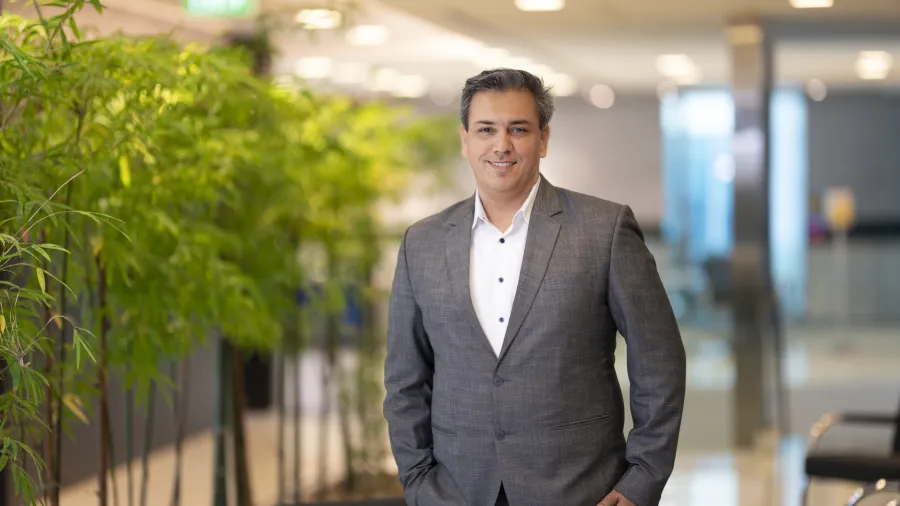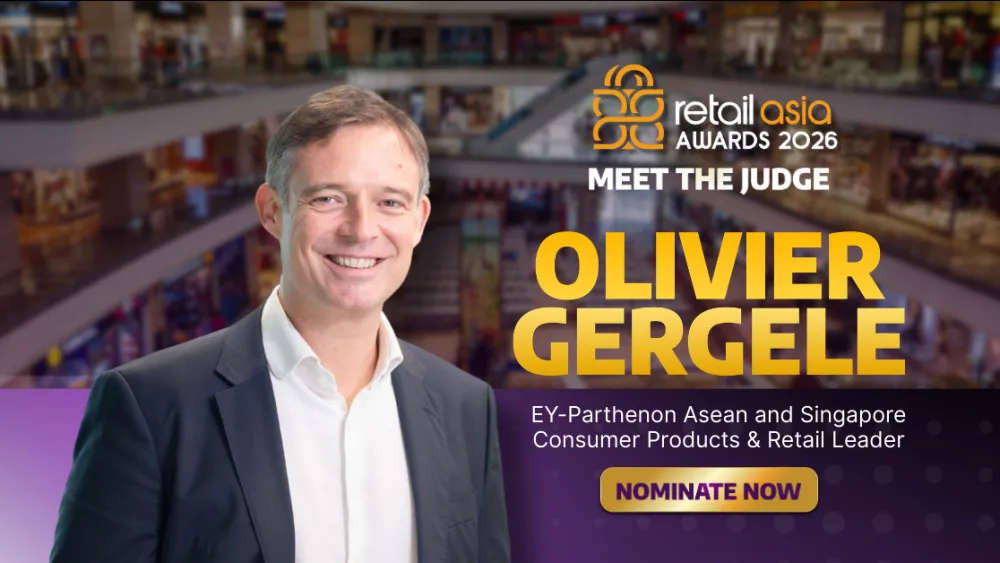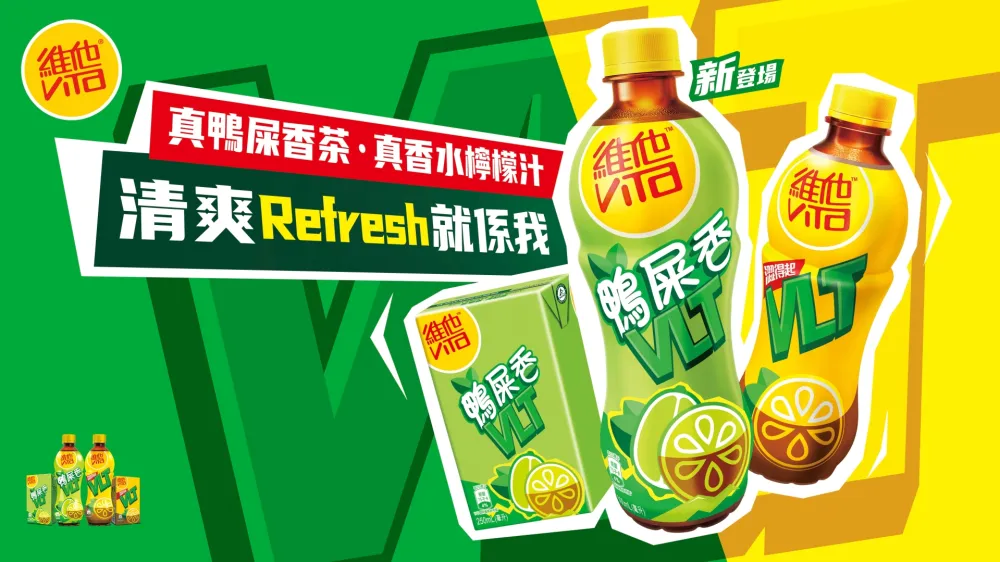
Brands are shifting to sustainable practices, EY exec Atul Chanda says
As a result of consumer demand and higher production costs.
Atul Chanda is the Asia-Pacific Supply Chain Leader and Asean Consumer Consulting Leader at Ernst & Young Solutions LLP, leveraging his deep knowledge of sales and supply chain functions in the consumer goods, retail and chemicals sectors across the Asia-Pacific region.
He has supported a number of local and multinational clients, in projects ranging from conceptualisation to final delivery of large-scale turnaround programs.
Atul works closely with clients in reviewing their processes and updating technologies for better to help them be more agile, efficient, competitive, and resilient.
Atul has led digital supply chain engagements and piloted prototypes that incorporate robotic process automation, analytics, mobility and artificial intelligence.
He has led many advanced supply chain analytics and process consulting initiatives, as well as designed and implemented supply chain control towers in Europe and the Asia-Pacific region.
Atul holds a BE (Chemical) from Panjab University, India.
As a judge in the FMCG Awards 2021, Atul spoke with Retail Asia and shared with us his journey as a consulting leader, as well as his thoughts on brands adopting more sustainable production practices, and the skills needed for future consumer goods-focused consulting professionals.
Can you explain your role as the Asia-Pacific Supply Chain Leader and EY Asean Consumer Consulting Leader? What experiences strongly impacted your career journey?
The supply and demand shocks brought on by the COVID-19 crisis has shown how major crises can significantly disrupt supply chains, particularly when companies are unprepared. Companies can no longer delay or ignore the importance of business process re-engineering supported by digital innovation.
To help clients on their transformation journey, particularly those in the consumer goods, retail and chemicals sectors, I work with them to reimagine their processes for greater efficiency and to leverage technologies for real-time visibility on detailed supply chain data and timely insights, to optimise matching supply to demand. This helps enhance agility, efficiency and cost-effectiveness for greater competitiveness and resilience in the face of disruptions.
My past 23 years of experience have been diverse and I have undertaken leadership roles at both regional and global levels through setting up organisational and business processes for consumer goods clients in the APAC region. One of the roles that I highly value is being the global client leader for a leading FMCG MNC, which allowed me to bring together cross-border and diverse work project teams (both internally and at the client’s side).
What are the trends in the FMCG industry that you have noticed in the past 12 months? Where should companies focus to maintain relevance?
The experience of the pandemic has reshaped consumers’ expectations and behaviours, which are still evolving.
Firstly, the EY Future Consumer Index showed that 37% of consumers plan to shop more online for products previously bought in stores. Companies are quickly ramping up their online capabilities in response to engaging with consumers who are shopping more frequently from home as well as strengthening their digital capabilities for the post-COVID world.
Secondly, around 80% of consumers say brands should be transparent about the environmental impact of their products and services, according to the same survey. This has resulted in ESG and sustainability considerations rising in prominence throughout the value chain. There is a favourable uptick in investments related to sustainability. Innovations such as “waterless beauty” – where skincare and cosmetic manufacturers are reducing their usage of water in the manufacturing process, upcycling, and reusable or refillable packaging solutions that have promoted awareness amongst eco-buyers.
Thirdly, the same survey also revealed that there is a renewed focus on health and wellness, which is propelling individuals to spend more on products that offer such benefits. Some FMCG companies are expanding new SKUs with an emphasis on health and wellness and are repositioning their products from being just a one-dimensional category to something more holistic and inclusive.
Lastly, FMCG is under cost pressures. The rising commodity and logistics costs have reduced margins for many entities, requiring many to redesign processes and leverage technologies to become more efficient and reduce costs.
Tackling these challenges has become imperative for companies not only to thrive but to also survive.
What are the challenges that FMCG companies experienced during the pandemic especially in developing new products and services? How were these addressed?
Until recently, chief operating officers (COOs) have focused primarily on finetuning the value chain for speed to market, efficiency and profitability. However, the COVID-19 pandemic has accelerated the disruptive forces of changing consumer preferences and the need for rapid digitalisation and innovative supply chain solutions for the FMCG sector.
FMCG companies face challenges on multiple fronts, particularly concerning understanding the future consumer. Many lack the ability to read rapidly changing consumers’ consumption patterns, especially in keeping up with the explosion of e-commerce or understanding new trends such as consumers’ awareness and inclination toward sustainability.
At the same time, they are struggling to pivot their operating models to meet business needs. For some companies, production levels are not able to keep up with demand spikes in certain categories caused by pent-up consumer demand due to COVID-19 restrictions and government stimulus. Some face raw materials and labour shortages, which have been exacerbated by the pandemic, global trade issues, and commodity price hikes and there is also a geographic risk of concentrated manufacturing capabilities. Another common issue is a lack of integrated end-to-end communication, which has caused transportation issues and a massive backlog.
Unfortunately, many consumer companies are making expensive short-term decisions to address these challenges, which may have long-term repercussions on their business relevance and viability. Companies need to break down siloes and undertake a broad view in decision-making. The current crisis has also highlighted the need to have end-to-end visibility across the supply chain. Investments in digital innovations are crucial in providing this visibility and building agile and resilient supply chains for timely actions.
Our approach is to deliver a holistic end-to-end solution from strategy to implementation solution to clients that is comprehensive in considering every financial, regulatory and tax aspect for the business.
The expanding EY Global Consumer network of professionals provides clients with access to global talent with deep industry knowledge and technical expertise. EY’s strong global connectivity enables us to assemble the right teams, share leading practices across the world and address consumer products and retail companies’ needs, whatever location they are active in.
How can FMCG companies make sure that the strategies and processes that they are adopting are viable for the business, especially in the long run/post-pandemic?
The viability of any business in the post-pandemic era will be based on its strategies, processes, and ability to adapt its business models to meet the requirements of the new-age consumers.
The four areas in which retailers should consider accelerating efforts to emerge stronger after the COVID-19 crisis are to drive omnichannel strategy, drive supply chain resilience, expand offerings and drive with agility.
When companies are rethinking their tailored regional supply chain strategies, they must consider the following.
Firstly, their operating systems must deliver on customer collaboration and order fulfilment. Their end-to-end management of inventories, warehousing, logistics to last-mile delivery planning will need to meet consumers’ expectations for quick delivery and prompt return services. Secondly, they will need to consider regional trade and tax value chain requirements between jurisdictions to land on an ideal location to optimise total cost-to-serve associated with procuring, manufacturing, importing, transporting, distributing and selling goods. Thirdly, they will need to consider their footprint, assets and investments, where the right level of geographic decentralisation is one where they can serve high-growth markets at compelling costs. Fourthly, they will need to design for supply chain visibility, intelligence and traceability, to develop a well-integrated supply chain with minimum interruption and maximum collaboration. Last but not least, they will need supply chain resiliency and sustainability, to reduce dependency on a narrow set of global vendors and increase reliance on local sourcing at competitive prices.
As an industry leader, what can you advise future leaders who want to pursue a career path similar to yours?
My advice to future leaders who wish to pursue a similar path is to follow the principles of the supply chain industry in their professional and personal lives i.e. to show resilience in dire times, create a favourable positive impact, and gain and optimise knowledge through constant learning and developing new skills.
As rightly said by American author Tom Peters, “Leaders win through logistics. Vision, sure. Strategy, yes. But when you go to war, you need to have both toilet paper and bullets at the right place at the right time. In other words, you must win through superior logistics."



















 Advertise
Advertise





